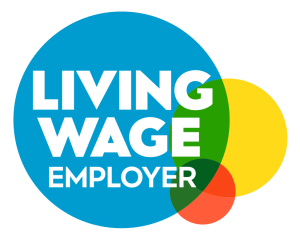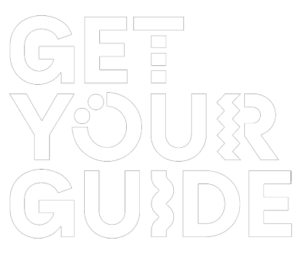This is the second part of an interview with Isabella Hammad, the author of The Parisian: an epic tale of a Palestinian man's journey beginning at the outbreak of the First World War. The interview was conducted by Lunan Zhao and Malak Khalil. It has been transcribed verbatim, with some light edits to aid the reader. You can find the first part of the interview here.
The call on educational institutions to decolonise their curricula in the UK and abroad has gained particular traction in recent weeks. In light of your own experiences as both a literature student and writer, what do you envisage for the future of the humanities, and academic study of fiction in particular?
IH: So I studied English, and felt very strongly that the syllabi was very restrictive. I mean, I know that the English syllabus at Oxford is a result of a historicist approach. I think it’s outrageous that you’re studying empire and you only get novels written by Englishmen. I just think that’s ridiculous. Why, when you have all these colonized peoples writing in English, are they not also on the syllabi? Yet you have Americans on the syllabi. So that obviously needs to change, if it’s not already; it’s promising to hear of the many decolonising initiatives going on.
“Why, when you have all these colonized peoples writing in English, are they not also on the syllabi?”
In general, I want there to be more accountability and critical thinking when engaging with texts. I wouldn’t want this to mean that we stop reading texts written by dubious personalities. If the text has historical value, literary value, any kind of value, I wouldn’t want to ‘cancel’ it. But it’s about engaging with texts critically, and understanding and interrogating why some texts have been canonized, and why others have not; what is ‘the canon’?
I also felt, perhaps from being a student or from being young, that when I was a student there was a kind of subservience to texts. I always felt like the text knows best and the secret is to unlock the text, and then you understand the genius of the text.
Looking back on some of the things we study, I now have a much more nuanced understanding. For instance, I now register my emotional response. I also register whether something is quite bad or not, like how well written it is, and also the historical political contexts and interrogate that a little more intelligently when reading.
It may just be growing up, but you aren’t taught as a student to register your emotional response to texts when it is obviously there. It’s art. I can remember being in tutorials and having emotional responses to the text, and that not forming any part of the discussion, as though a sort of critical ‘objectivity’ was something that could possibly be achieved.
Emotions are a big part of how you respond to things and the literature you read, and it should be something that you’re also thinking about. I have a lot of feelings about the way in which I was taught literature, and felt that there was a lot of unlearning to be done. At the same time, I was grateful for my education obviously, but there are certain things that I remain very critical of now.
There’s an emphasis throughout the narrative on how characters misunderstand foreign lands based on their limited knowledge of their histories. In today’s world, what historical omissions or underrepresented histories, do you think, shape perceptions of Palestine, and of Britain?
IH: The history is written by the victors, as you all know, and we still have a lot of unresolved, simplifying misconceptions. Human beings like to simplify, put things into boxes, and not distinguish between things. You have that on both sides of the political spectrum. I think it’s something that’s chronic in the human mind and that has to be fought against: the lack of nuance, the lack of attention being paid to particulars.
This was an idea I was preoccupied with when writing the book. It’s just that when this idea interacts with power, when there’s a power imbalance, that’s when it becomes more dangerous. When Midhat generalizes about the French it doesn’t really do anybody any harm, for instance, but when it happens the other way around when you’ve got colonial power and subjugated people, then you’re engaging with something with much greater repercussions.
I think now there’s finally a reckoning, perhaps for the first time, with Britain’s colonial history, and with it reaching into all consciousnesses; it’s not a fringe thing talking about the British.

In terms of Palestine and Britain, it’s pretty clear that Britain is really responsible for what happened in Palestine. It also wasn’t so simple, of course. Yes, they did sign the Balfour declaration in 1917, but it wasn’t like a straight line from that onwards. There were also other things that happened. They made promises to lots of people, so that basically at every stage they were acting in their own self-interest, with prejudice towards other peoples, both Jews and Arabs. If you look at the archives, they were extraordinarily racist towards both peoples.
Things were hanging in the balance much more, and that was something I wanted to highlight: the contingency of historic events rather than the determinacy. That things might have gone differently, that was something I wanted to reclaim and to inhabit, you know. And I think that’s another thing about not generalizing and then paying attention to particulars.
“Human beings like to simplify, put things into boxes, and not distinguish between things. You have that on both sides of the political spectrum. I think it’s something that’s chronic in the human mind and that has to be fought against: the lack of nuance, the lack of attention being paid to particulars. “
I’m currently reading Silvia Federici’s Caliban and the Witch. She’s an Italian Marxist, feminist and she’s amazing. The book is her seminal work and it’s about the beginnings of capitalism, or sort of like pre-capitalist Europe roughly, and she critiques Marx and maps gender onto a class dynamic.
So the idea that women’s bodies become a kind of a commons: the obscuring of women’s work essentially. But what’s really funny reading it is I realize that my understanding of the middle ages is formed by cartoons, it’s formed by history books. So for instance, my understanding of the heretic movements was of people being burned at the stake. And that’s it. And people being against the church. Yet Federici describes how they were a sort of pre-capitalist movement, against which capitalism was a counter revolutionary movement.
The book is just a recent example, so it’s fresh in my mind, but I was like ‘wow, my understanding of history is so formed by this historical record that has not really been undermined in the mainstream media’. It’s the same in all sorts of these things, where history is written by the victors.
Medicine appears to be a tool both for colonialism and sexism in The Parisian. For instance, Dr Molineu’s understanding of Midhat as coming from a more primitive race according to medical racial theory, or the medical label of hysteria to describe Ariane’s suffocation under a lack of freedom. In what ways do you see medicine still oppressing marginalized individuals?
IH: That’s a really interesting question, partly because science is often – misleadingly – given an objective status. So it’s a little harder to look at the special interest groups involved or the ways that it is tied up with certain kinds of hegemony or domination of the usual suspects.
To speak specifically about women’s bodies, there are certain things that if they related to men’s bodies, we would definitely have done much better research already. Take contraception, for example. No man, I think, would accept taking a pill with unknown quantities of different hormones that do not match the hormones in their own body, when you’re gonna have massive side effects if it’s completely off, including, in some cases, a potential increase in risk of cancer. It’s shocking. If it were men, they would probably measure your hormone levels and find something to match it.
You see this repeatedly. People are talking about this more, because COVID is revealing it. It’s showing huge cracks in our societies being brought to light, America being the worst. I’ve lived in America for a long time, and it’s the sort of thing that if you break a leg you can suddenly fall down a money hole. People just don’t have access unless you have a certain kind of job and pay grade.
I think the way in which medicine is practiced certainly still oppresses marginalized individuals. And I was really interested in this issue in the story because of medicine’s inability to really be objective, and that being something I wanted to play around with.
Looking forward, what do you think is the role for long-form popular literature in a digital world that is increasingly valuing instantaneous knowledge and immediacy in aesthetics? How do you think literature, and the way it is read, shapes a reader’s world views?
IH: I feel hopeful that the form will stay. I know that apps and the internet endanger reading novels, but I think that when people read a novel, it’s a really private, personal act. We are inhabiting and imagining the lives of millions of others. And it makes you reflect upon yourself. Reading fiction can be a powerful and meditative process that enables you to think about the world, and I think literature is something that people will continue to turn to.
Interview by Lunan Zhao and Malak Khalil





